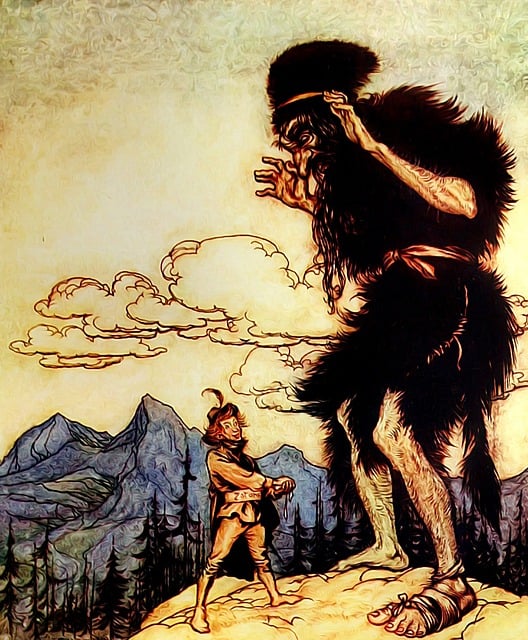rio de janeiro jogo do bicho 🏉 Jogo do Bicho: A Cultural Phenomenon in Rio de Janeiro's Socioeconomic Landscape

Jogo do Bicho: A Cultural Phenomenon in Rio de Janeiro's Socioeconomic Landscape
In the vibrant tapestry of Brazilian culture, few phenomena evoke as much fascination and controversy as the Jogo do Bicho, a game of chance deeply entrenched in the social fabric of Rio de Janeiro. Emerging in the late 19th century, this illicit lottery system has evolved from a simple amusement into a complex socio-economic entity, reflecting the intricacies of Brazilian society, governance, and crime. rio de janeiro jogo do bicho
At its core, Jogo do Bicho operates on the principle of betting on animals, where players select a number corresponding to a particular animal, with the hope of winning a cash prize based on the outcome of a draw. While the game is technically illegal, it has flourished in the shadows of the law, supported by a network of informal operators and players who treat it as a cultural rite rather than a mere gambling activity. The game’s resilience can be attributed to several factors, including its accessibility, social acceptance, and the economic conditions that permeate the lives of many residents.rio de janeiro jogo do bicho

Historically, the game was initiated by a zoo owner who sought to attract visitors by offering prizes for betting on the animals in his collection. This simple premise quickly transformed into a widespread betting culture, with the game seeping into the everyday lives of millions. In a city marked by stark socio-economic divides, Jogo do Bicho provides a semblance of hope and excitement for those seeking to improve their financial circumstances. The allure of a substantial payout resonates particularly with individuals from lower socio-economic backgrounds, who may see the game as one of the few avenues to achieve financial mobility.
The informal nature of Jogo do Bicho has significant implications for the socioeconomic landscape of Rio de Janeiro. As an unregulated industry, it operates outside the purview of governmental oversight and taxation, generating substantial revenue for its organizers while simultaneously depriving the state of potential tax income. This scenario creates a paradox where the game’s popularity undermines formal economic structures, prompting discussions about the potential benefits of legalization and regulation. Proponents argue that formalizing Jogo do Bicho could lead to increased government revenue, improved consumer protections, and enhanced public safety. However, opponents caution against the risks associated with legitimizing an industry that has longstanding ties to organized crime and corruption.rio de janeiro jogo do bicho
Moreover, the political ramifications of Jogo do Bicho cannot be understated. Over the years, the game has been linked to various criminal organizations, often serving as a funding mechanism for illicit activities. This connection raises critical questions about the interplay between crime, governance, and public policy in Brazil. The government’s inconsistent stance on the game—oscillating between attempts at prohibition and tacit acceptance—reflects broader challenges in addressing organized crime and corruption within the country.
The social acceptance of Jogo do Bicho is also worthy of examination. In a city where informal economies are prevalent, the game is often viewed not merely as gambling but as a communal activity that fosters social bonds. It is not uncommon for individuals to gather in groups to place bets, share stories, and engage in discussions about the latest draws. This communal aspect highlights the game’s role in reinforcing social ties among participants, creating a sense of belonging that transcends economic hardship.
Despite its cultural significance, the Jogo do Bicho remains a contentious issue, often drawing criticism from various sectors of society. Advocates for public health and safety express concern about the potential negative consequences of gambling addiction, particularly among vulnerable populations. Furthermore, the game’s association with organized crime raises ethical dilemmas regarding its impact on community safety and well-being. rio de janeiro jogo do bicho
In recent years, the digitalization of gambling has introduced new dimensions to the Jogo do Bicho phenomenon. Online platforms have emerged, enabling players to participate in the game from the comfort of their homes. This shift not only broadens the reach of Jogo do Bicho but also complicates the regulatory landscape, posing challenges for law enforcement and policymakers. The convergence of technology and traditional gambling practices necessitates a reevaluation of existing laws and regulations to address the evolving nature of the industry.
In conclusion, Jogo do Bicho represents a multifaceted cultural phenomenon that encapsulates the complexities of Brazilian society. It serves as a reflection of the socio-economic challenges faced by many residents of Rio de Janeiro while simultaneously offering insights into the interplay between culture, crime, and governance. As discussions around the future of gambling in Brazil continue to evolve, it is imperative to consider the cultural significance of Jogo do Bicho and its potential implications for society at large. Whether viewed as a harmless pastime or a gateway to organized crime, the game undeniably holds a prominent place in the narrative of Rio de Janeiro, warranting continued exploration and analysis.rio de janeiro jogo do bicho

Fale conosco. Envie dúvidas, críticas ou sugestões para a nossa equipe através dos contatos abaixo:
Telefone: 0086-10-8805-0795
Email: portuguese@9099.com


